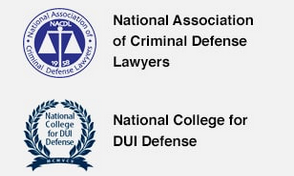Pre-Indictment Process in Felony Cases
Criminal Lawyer Representing Phoenix Residents Charged with Serious Offenses
In Arizona, there are six classes of felonies, with class 1 felonies being the most serious. Felony convictions can result in harsh penalties – they may be punished by more than a year in prison. You may be concerned about the pre-indictment process in felony cases pursued in Arizona. James E. Novak is an experienced Phoenix criminal defense attorney who previously worked as a prosecutor and now uses his insights about prosecuting crimes to provide a vigorous defense against criminal charges.
Understanding the Pre-Indictment Process in Felony Cases
After the police receive a report of a possible felony, an officer will come to the scene of the crime to investigate. The first step may be to obtain medical assistance for anyone who is hurt. The officer then interviews the victim and any witnesses to the felony and creates a police report setting forth details of the crime. For example, if the crime is a felony cocaine crime in which the perpetrator of the felony was caught possessing enough cocaine to warrant a possession with intent to sell charge, these steps may be sufficient to create a report to be provided to the prosecutor, who can make a decision on whether to prosecute.
However, with other felonies, there may be additional steps taken, such as calling a detective or crime scene investigators to the scene. Sometimes it is necessary to take special photographs of the scene or the injuries. There may be a recording of fingerprints or gathering of more evidence. For example, certain special steps may need to be taken with regard to crimes involving serious bodily injury or death. Under certain circumstances, a county attorney may arrive at the scene and help with any legal issues that may arise.
When the police believe that they have identified a suspect, and there is enough evidence to establish probable cause to believe that the suspect perpetrated the felony, they may arrest the suspect. However, a suspect may not be arrested at the scene. Sometimes the incident report may be sent to detectives to be investigated further. A detective may contact a witness for a formal statement. In some cases, further descriptions are needed to identify suspects. After detectives complete their investigation, the police may arrest a suspect who they have probable cause to believe has perpetrated a crime, or they may turn in findings for a prosecutor’s review.
The prosecutor may not believe that there is enough evidence to justify bringing a criminal charge. In that case, the prosecutor can ask for more investigation or decline to file charges. Or the prosecutor may ask a prosecutor in another jurisdiction to review.
When a prosecutor believes that the investigation has resulted in enough evidence to show the commission of a crime, and there is a reasonably good chance of securing a conviction, the prosecutor can either file a direct complaint or ask for a grand jury indictment. A judge reviews a direct complaint to determine whether there is enough evidence and can issue a summons asking the suspect to appear at a preliminary hearing.
However, a prosecutor can elect to charge a suspect by presenting evidence to a grand jury. The grand jury includes nine citizens, who are chosen arbitrarily. When a grand jury decides that there is enough evidence to show that a particular suspect perpetrated a crime and should be tried, the findings will result in the jurors issuing a true bill or indictment.
Even if the prosecutor recommends certain charges, a grand jury, after hearing evidence, can issue an indictment alleging different charges. It can also decide that there is not enough evidence to support the charges. When a grand jury delivers an indictment, a judge can issue a summons for the defendant to come to court or authorize police to arrest the defendant.
The suspect may then be taken to jail and booked. Within 24 hours of booking, the defendant is supposed to make an initial appearance in court, where they will be told what the felony allegations are, told of the right to an attorney, and given the conditions of their release. The defendant may be released only upon posting a cash bond, or they may be required to stay in jail, depending on their criminal record or the severity of the felony charges.
Protect Your Rights by Retaining a Criminal Lawyer in Phoenix
If you are being investigated for a serious crime in Arizona, you should understand the pre-indictment process in felony cases and consult a criminal defense attorney who will know how to protect your rights. James E. Novak represents defendants throughout the Phoenix area, including in Mesa, Tempe, Chandler, Gilbert, Scottsdale, and other cities in Maricopa County. Contact James Novak at (480) 413-1499 or via our online form.






















